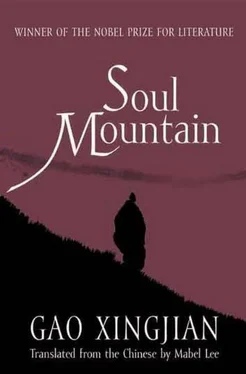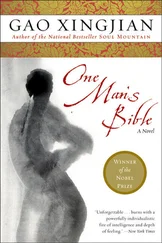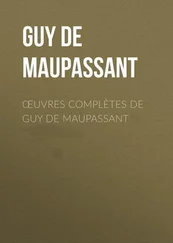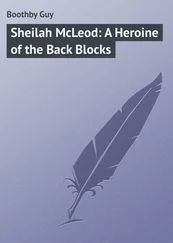“Are you leaving?” she asks.
“Doesn’t the bus go at seven?” I ask instead.
“Yes, but there’s still quite some time.” She seems to be talking to herself.
I am getting my backpack ready, bundling up dirty clothes and stuffing them in. I had intended to stay a couple more days in this county town to do my laundry and to get over my fatigue. I know she is standing right behind me, watching me, but I don’t look up, afraid I will succumb to the look in her eyes, not be able to leave, and be filled with even greater remorse.
The small guest room is sparse, with only a single bed and a small table by the window, and my things are spread out on the bed. I have just come from her room, having spent last night there, and lying on her bed had watched dawn break with her through the window.
I came down in a bus from the mountains to this small county town and it was at dusk, on the only long street in town, just outside the window, that I met her. The shops all had their shutters up and there were few people on the street. She was walking ahead of me and I caught up and asked her where the cultural office was. I wanted to find lodgings but this seemed a better opening gambit. She turned around. You couldn’t say she was pretty but she had a pleasant face, a fair complexion and thick red lips with well-defined corners.
She said I could go with her and asked who I wanted to see there. I said anyone would do but of course it would be best if I could see the head. She asked why I wanted to see the head and I said I was collecting material. What sort of material was I collecting? She also asked me what I did and where I was from. I said I had documents to verify my identity.
“May I see your documents?” She raises her eyebrows and seems to want to interrogate me.
I take the Writers’ Association membership card in the blue plastic cover from my shirt pocket and show it to her. I know my name is already on documents circulated to various echelons of the central government down to the provincial cities and county towns, and could be seen by the heads of party committees and cultural offices. I also know there are people who like making reports and can use what I say and do to write up reports along the lines of the government documents. Friends who have had such experiences have warned me to avoid such people and so avoid getting into trouble. However, my experience in the Miao stockade has shown that sometimes showing this card comes in handy. Especially when the other party is such a young woman. I’m sure to be looked after.
She actually stares at me to see if I match the photograph on the card.
“You’re a writer?” she asks, her face relaxing.
“I look more like someone hunting for Wild Men,” I say, trying to joke with her.
“I’m from the cultural office,” she explains.
This is lucky. “May I know your name?” I ask her.
She says her name isn’t important. She also says she has read my work and really likes it. Her office has a guest room for cultural cadres from the villages, it’s cheaper than the inns and fairly clean. By now there’s no-one on duty but she can take me straight to the head’s house.
“The head lacks culture.” She’s already starting to look after me. “But he’s a good man,” she adds.
The head, who is short and fat, and getting on in years, first asks for my credentials. He carefully examines my card. The embossed seal on the photograph is virtually impossible to fake and after slowly thinking for a while, he breaks into a smile and hands it back, saying, “Writers and journalists sent by the higher authorities are usually received by the county committee office and the county propaganda department, otherwise, the director of the county cultural bureau receives them.”
I know that to be head of a cultural office is a sinecure. Cadres appointed to this position are like old people with no-one to look after them being sent to a home for the aged. Even if he has seen the classified documents, his memory isn’t necessarily very good. It is my good fortune to encounter such a kindly old man, even if he does lack culture, so I hasten to say, “I am a minor writer, there’s no need to trouble so many people.”
“Our cultural office here only has some local amateur activities for spreading popular culture,” he explains, “for example, going to the villages to collect folk songs… ”
I interrupt him to say, “Folk songs are what interest me most, that’s the sort of material I am collecting.”
“Isn’t the upstairs guest room at the office vacant right now?” she reminds him at precisely the right moment, glancing at me with her intelligent eyes.
“It’s very basic. There’s no dining room and you’ll have to go out to eat,” he says.
“That actually suits me better, I also want to travel to surrounding villages,” I say.
“Well, if you are prepared to make the best of it,” he concludes politely.
So I take up lodgings at the cultural office building, and she takes me upstairs and opens the door of the guest room by the side of the stairs. After I put down my bags she says her room is at the end of the corridor and invites me in.
It is a small room smelling of powder and lipstick. On the bookshelf by the window is a round mirror and a large number of bottles and jars, the toiletries which these days are necessities even for county town girls. The walls are covered with posters of, I presume, her favourite movie stars. One is a stage photo cut from a pictorial of a barefoot actress clad in transparent silk performing an Indian dance. A panda with black and white silk fur is sitting on the neatly folded bedding inside the mosquito net: this is very fashionable at present. Only the delicate wooden bucket in the corner of the room, shiny red with the original lacquer, retains anything of the unique character of the town. I have been travelling around in the mountains for several months with village cadres and peasants, sleeping on straw mats, using coarse language and drinking vitriolic liquor, and on entering this bright room smelling of powder and lipstick, I immediately feel lightheaded.
“I’ve probably got lice,” I say apologetically.
She doesn’t believe me, laughs, and says, “Have a wash. I filled the thermos flasks during the day so there’s still hot water, you can wash in this room, you’ll find everything here.”
“That’s putting you to too much trouble,” I say. “I’ll go back to my room, but can I borrow a tub?”
“What does it matter? There’s cold water in the bucket.” As she says this, she pulls a red lacquered tub from under the bed and fetches some soap and towels. “It’s all right, I’ll go to the office and read for a while. The archive room is next door, further on is the office, and your room is at the very end.”
“What archives do you have here?” I have to find something to say.
“I don’t really know. Do you want to have a look? I’ve got a key.”
“Of course, that’d be great!”
She says a reading room with books and periodicals is downstairs and there’s a recreational room which she can show me later on.
After a wash I feel much better, although the scent of her soap clings to me. She comes back and makes me a cup of tea. Sitting ensconced in her room I no longer want to look at any archives.
I ask what sort of work she does here. She says she’s a graduate of the local teachers’ college and studied music and dance. The old woman in charge of the library fell ill so she has to look after the reading room and deal with lending out books. She’s been working here for almost a year and, she says, she is almost twenty-one.
“Can you sing the local folk songs?” I ask.
Читать дальше
Конец ознакомительного отрывка
Купить книгу












